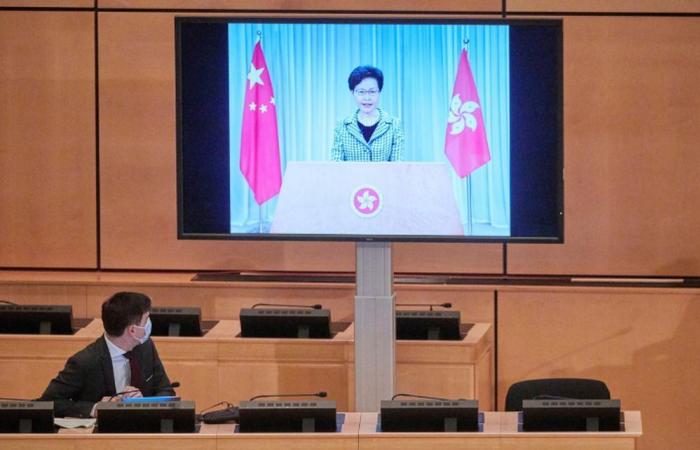China’s parliament passed national security legislation for Hong Kong, setting the stage for the most radical changes to the former British colony’s way of life since it returned to Chinese rule 23 years ago.
Lam’s video message to the Human Rights Council in Geneva
came after an unprecedented joint call by U.N. experts for greater scrutiny of China’s record, including “moves against the people of Hong Kong”, and its treatment of ethnic minorities in the restive regions of Xinjiang and Tibet.
Hong Kong had been “traumatised by escalating violence fanned by external forces”, she said.
“All in all these acts have crossed the ‘one country’ red line and called for resolute action,” Lam said, adding that the new legislation would be applied “in accordance with the Basic Law”, Hong Kong’s mini-constitution.
She noted that the Basic Law - which enshrines the principle of “one country, two systems” after Hong Kong returned to Chinese rule in 1997 - protects freedoms of speech, assembly and the press.
“In short, the legislation will not undermine ‘one country, two systems’ and Hong Kong’s high degree of autonomy,” Lam said.
“The legislation aims to prevent, curb and punish acts of cessation, subversion of state power, terrorist activities and collusion... These crimes will be clearly defined in the law,” she said.
Hong Kong was rocked by months of sometimes violent anti-China, pro-democracy unrest last year, with protesters angry at perceived meddling by Chinese Communist Party rulers in the city’s freedoms. China denies interference.
U.N. High Commissioner for Human Rights Michelle Bachelet said earlier this month that any new national security laws imposed on Hong Kong “must fully comply with China’s human rights obligations” and international treaties protecting civil and political freedoms.
More than 50 U.N. human rights experts, in an unprecedented joint statement last Friday, urged the council to hold a special session on China and establish a standing mandate to monitor abuses.
Agnes Callamard, U.N. investigator on extrajudicial executions, said in a tweet on Tuesday that “now more than ever” the council should act.
Sophie Richardson, China director of Human Rights Watch, said in a tweet on Lam’s speech: “An unsurprisingly robotic and shockingly dishonest intervention, especially on ‘achieving consensus,’ from #Hongkong #CarrieLam #HRC44. Want a consensus? Let people have a say.”
















































